Ways to promote a learning culture through workplace design
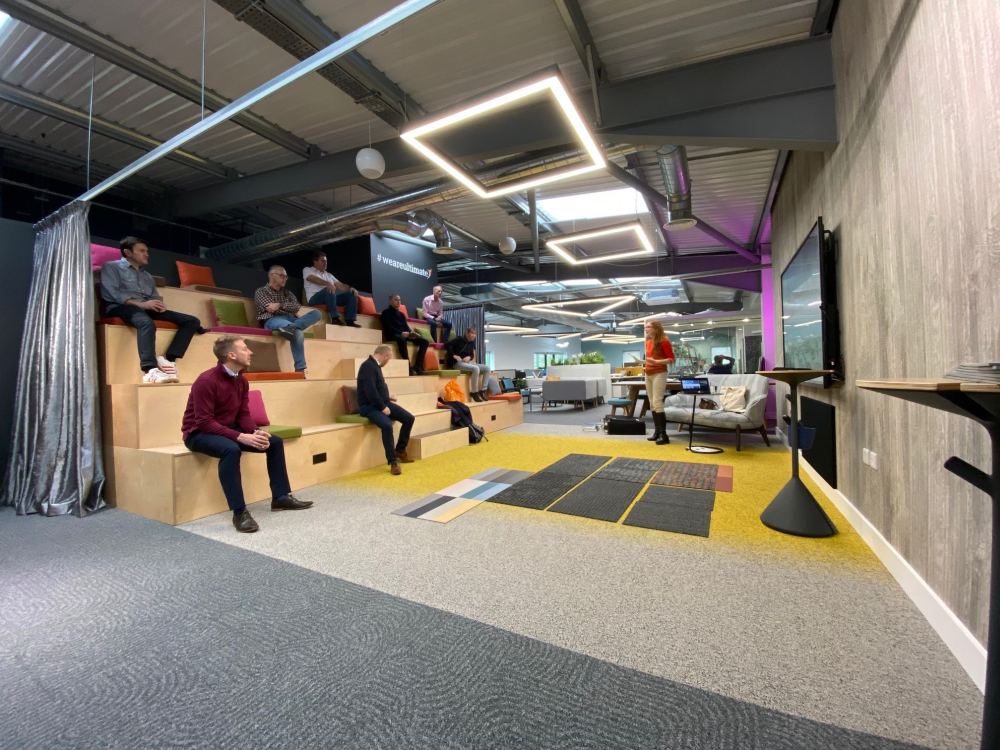
This week is national Learning at Work Week, an annual event which promotes the importance of growth and development in the workplace. A supportive and inclusive learning culture is linked to positive outcomes such as job satisfaction and increased motivation, so it’s critical your physical space facilitates the varying requirements of your team.
Recent events have accelerated the need for organisations to adapt to new ways of working and the technology that supports it. To protect ourselves and others, remote working has been encouraged, pushing employees to embrace digital working. For organisations to thrive in this ever-changing landscape, it’s important to adopt a learning culture that enables a positive attitude to frequent change.
Here are some ways to promote a learning culture through your workplace design.
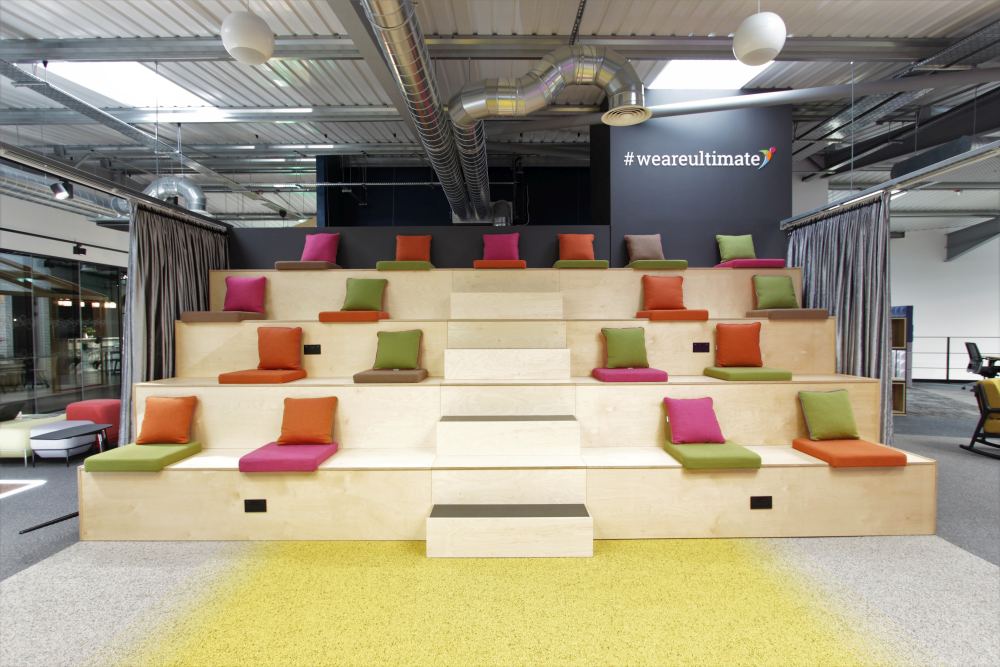
Presentation Zones
Dedicating space to host events and presentations facilitates the opportunity to learn from, and share with, colleagues, clients and external organisations. To encourage involvement from the full team, remote or otherwise, consider integrating AV equipment for video calls and whiteboards or writable wall surfaces for idea generation.
Tiered seating provides an uninterrupted view for all involved, or flexible seating arrangements allow the space to be reconfigured on-demand. Similarly, thoughtful placements of necessary sockets solve any charging or connectivity problems before they even arise.
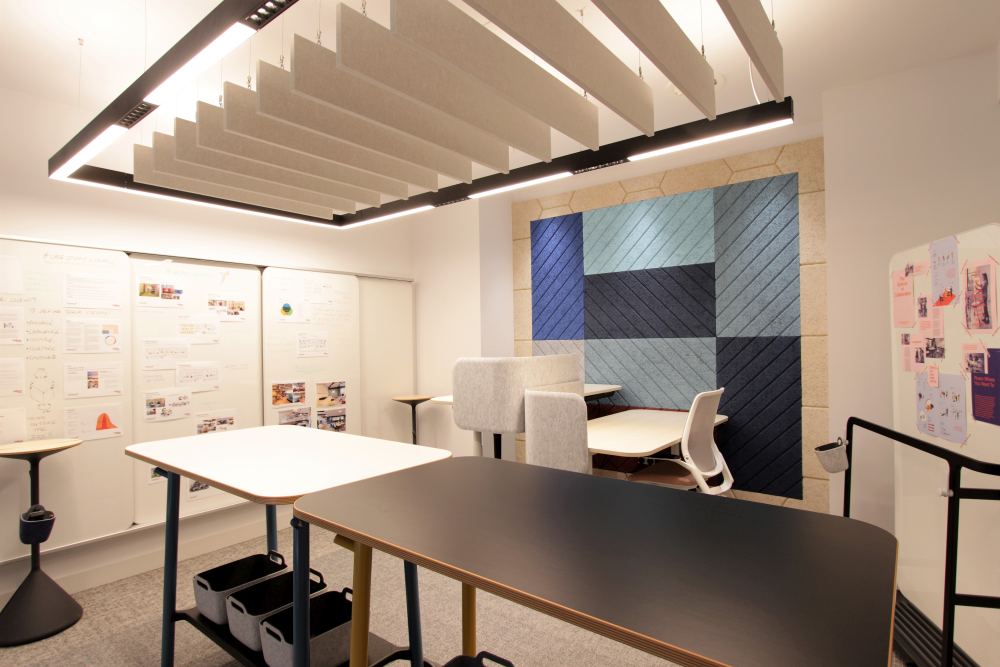
Project Rooms
All workplaces need creative spaces. A place designed for brainstorming, problem solving and pitching. An agile environment where teams can gather to communicate, or individuals can retreat to focus.
Equipping these areas with moveable desks, tables and whiteboard carts allows the space to be flexibly designed dependant on the immediate need. Multipurpose whiteboards are ideal to showcase documents and annotations, visualise concepts and aid pitching. These can be portable, free-standing or wall-mounted, so they could be brought into the wider office space if necessary.
To prevent unwanted noise escaping into the external office, consider acoustically-sound glass fronts, textured wall panels and/or ceiling baffles which all prevent sound reverberation.
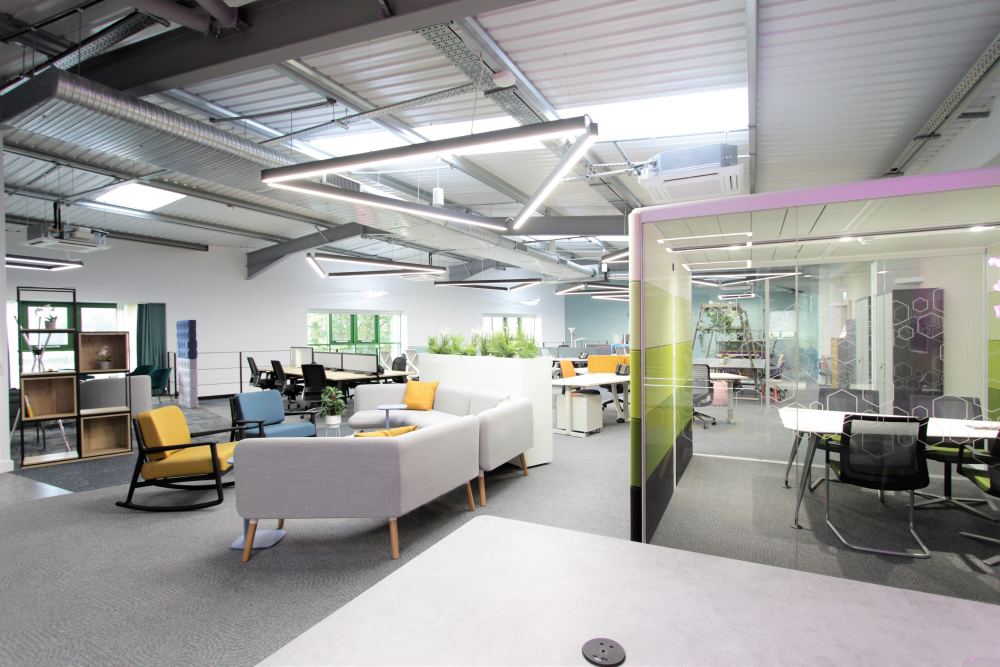
Private Booths
Having the ability to shelter from common distractions, with different levels of privacy available, supports a range of personalities and work tasks. Whether for video calls, webinar watching or group discussions, purpose-built booths provide privacy in an open plan environment.
Dependant on your organisation’s needs, booths can feature everything from power points and floating desks to full furniture packages and AV equipment. Aesthetically, designs can vary from unobtrusive to statement pieces to completely bespoke.
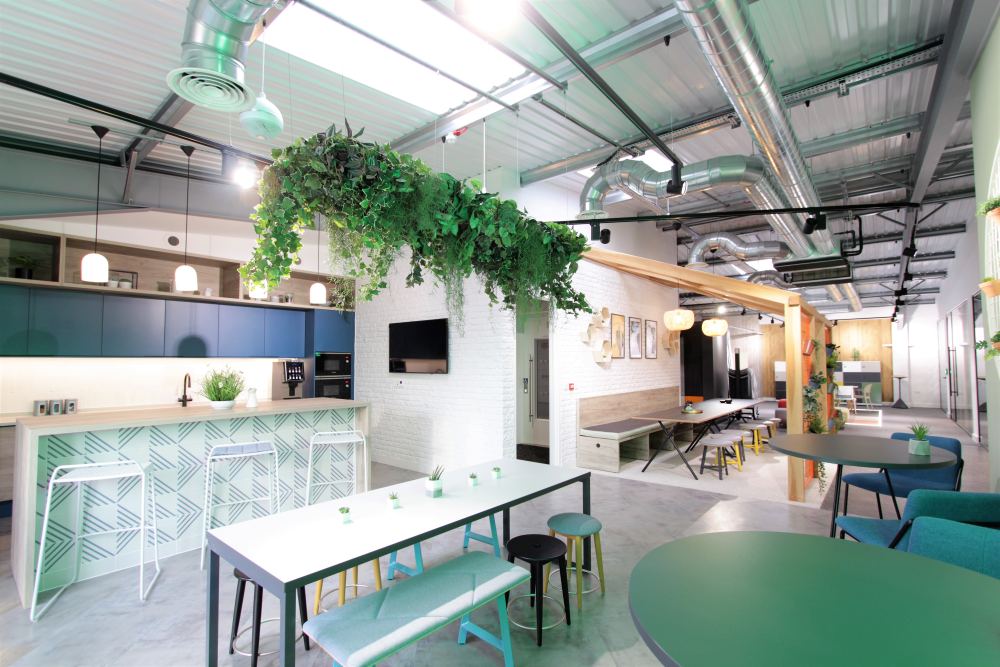
Work Cafés
73% of participants in a March 2021 survey by Indeed reported missing socialising with their colleagues during the pandemic. Spontaneous interactions can help problem solve and spark ideas, helping to build a strong community culture in your organisation. This is difficult to recreate virtually.
As we begin to move back into the office as a pandemic-aware society, these experiences will influence needs and expectations. Work cafés transform traditional corporate cafeterias into dynamic spaces that can be utilised for not only refreshments but collaboration, focus and relaxation. They provide the space to get away, rather than go away, from the workplace.
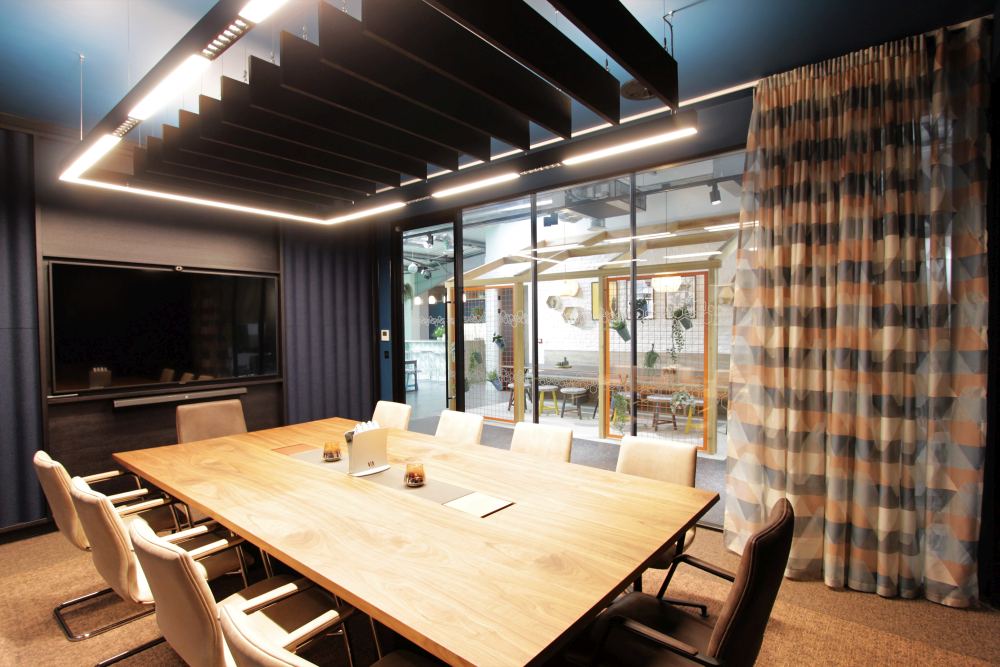
Boardrooms
Client-facing meeting rooms are professional zones that need to provide acoustic privacy, necessary technology and adequate space for manoeuvrability. Boardrooms are often the heart of a workplace, where important discussions and decisions take place. This is why they need to authentically reflect your organisations values.
For example, our boardroom offers a broad worksurface for technical drawings, design mood boards, fabrics swatches and so on. Through careful space planning, we’ve ensured easy navigation, good visibility for screen viewing and adjustable lighting to support different tasks.
Integrating software such as Microsoft Teams Rooms seamlessly connects individuals across a hybrid workplace. Consistent training ensures all can easily start or join a meeting, share ideas and content, and allow people to meet regardless of location.
LinkedIn recently reported that technical skills have a relatively short shelf-life of less than five years. As we have seen over the last year, digital skills can provide new ways of working and enable individuals to do their jobs more efficiently. 90% of newly emerging jobs are said to require digital skills of some kind. Ensuring access to relevant software and necessary training can lower stress, increase productivity, and give your business a competitive edge.
To find out how Ultimate can help translate a strong learning culture into your physical workspace, contact us here.

